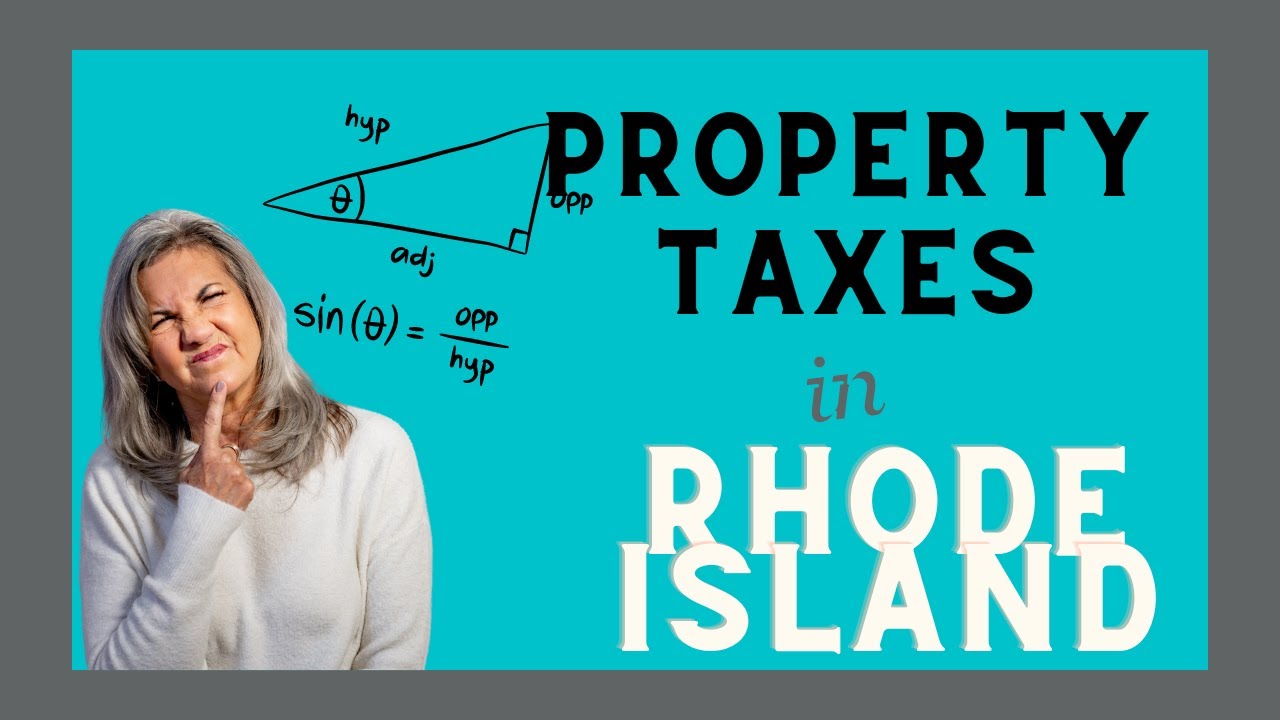Introduction: Understanding Property Taxes in Rhode Island
Property taxes are a significant source of revenue for local governments in Rhode Island. These taxes are imposed on real estate properties, including residential, commercial, and industrial properties, and are used to fund various essential public services such as schools, infrastructure, and public safety. Understanding the cost of property taxes in Rhode Island is crucial for homeowners and prospective buyers.
How Property Taxes are Calculated in Rhode Island
In Rhode Island, property taxes are calculated based on the assessed value of the property and the applicable tax rate. The assessed value is determined by the municipal assessors, who evaluate the property’s market value, considering factors such as location, size, condition, and recent sales of similar properties in the area. The tax rate, also known as the mill rate, is set by each municipality and is expressed as a certain number of dollars for every $1,000 of assessed value.
Factors that Influence Property Tax Rates in Rhode Island
Several factors influence property tax rates in Rhode Island. One key factor is the budgetary needs of each municipality, as local governments rely heavily on property taxes to fund their operations. Additionally, the value of the property and the overall tax burden on the community play a role in determining the tax rates. Other factors include changes in state legislation, economic conditions, and population demographics.
Comparing Property Tax Rates Across Rhode Island Cities
Property tax rates can vary significantly across different cities and towns in Rhode Island. For example, Providence has one of the highest property tax rates in the state, while some smaller towns may have lower rates. It is important for homeowners and potential buyers to research and compare property tax rates in different cities before making a decision. This comparison can help individuals estimate their annual tax obligations and effectively plan their finances.
The Impact of Property Tax Assessments on Homeowners
Property tax assessments directly affect homeowners by determining the amount of tax they owe. In Rhode Island, if a property is assessed at a higher value, the homeowner will be responsible for paying a higher amount of property taxes. This can be a significant financial burden for homeowners, particularly if their property is assessed at a value that does not align with its market worth.
Exemptions and Deductions Available for Rhode Island Property Taxes
Rhode Island offers various exemptions and deductions that can help homeowners reduce their property tax burden. These exemptions include the homestead exemption, which provides a reduction in the assessed value for owner-occupied residential properties. Other exemptions may apply to disabled veterans, elderly individuals, and certain types of property, such as farmland. Homeowners should consult with their local tax assessor’s office to determine if they qualify for any exemptions or deductions.
Understanding Property Tax Appeals in Rhode Island
If homeowners believe that their property has been over-assessed, they have the right to appeal the assessment. The appeal process involves providing evidence to support the claim of an incorrect assessment, such as recent appraisals or sales data. It is important to adhere to specific timelines and guidelines set by the local assessors’ offices. Engaging the services of a qualified real estate attorney or property tax consultant may be beneficial during the appeal process.
Property Tax Payment Deadlines and Late Fees in Rhode Island
Rhode Island property taxes are typically due twice a year, with payment deadlines falling in December and June. Failure to pay property taxes on time can result in penalties and interest charges. The specific deadlines and late fee percentages vary by municipality. Homeowners should be aware of their payment obligations and ensure timely payments to avoid additional financial burdens.
The Consequences of Unpaid Property Taxes in Rhode Island
Unpaid property taxes can have severe consequences for homeowners in Rhode Island. If property taxes remain unpaid for an extended period, the municipality may initiate a tax sale, where the property is auctioned off to recover the unpaid taxes. Homeowners risk losing their property and facing legal and financial challenges. It is crucial to prioritize property tax payments and seek assistance if financial difficulties arise.
How Property Taxes in Rhode Island Fund Local Services
Property taxes play a vital role in funding essential local services in Rhode Island. These taxes provide the necessary revenue for schools, police and fire departments, road maintenance, waste management, and other vital public services. The amount of property tax each homeowner pays contributes directly to the provision and maintenance of these services within their community.
Recent Changes in Rhode Island Property Tax Legislation
Rhode Island has seen recent changes in property tax legislation aimed at providing relief to homeowners. Some changes include increasing the homestead exemption amount and implementing caps on annual property tax increases. These changes can offer homeowners some protection against significant tax hikes, but it is essential to stay informed about the latest legislation and its potential impact on property taxes.
Tips for Managing and Minimizing Property Taxes in Rhode Island
To manage and minimize property taxes in Rhode Island, homeowners can take several steps. These include staying informed about local tax rates, carefully assessing property values and challenging assessments if necessary, exploring available exemptions, and maintaining good payment habits to avoid penalties. Seeking professional advice from real estate professionals, tax consultants, or attorneys can provide valuable insights on managing property taxes effectively. Regularly reviewing property tax bills and staying involved in local government decisions can also contribute to a better understanding and management of property taxes.





